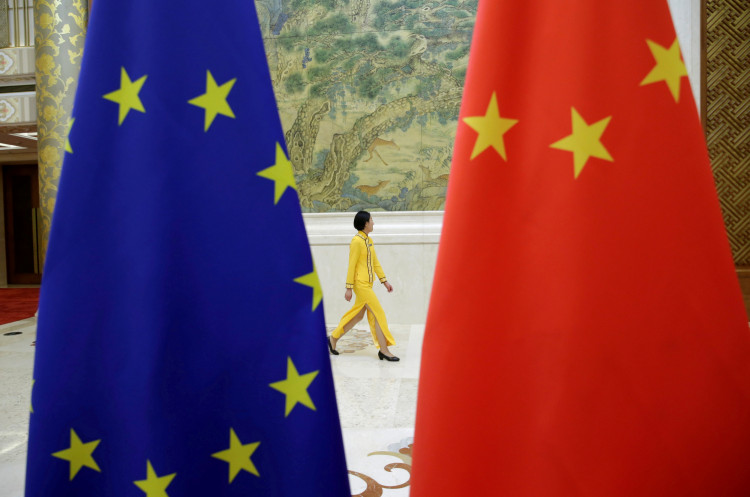China has sharply criticized the European Union after the bloc imposed its first comprehensive sanctions on Chinese entities over their alleged support for Russia's military activities in Ukraine. The EU's 15th package of sanctions, announced this week, includes asset freezes and travel bans on seven Chinese individuals and entities accused of supplying drone components and microelectronics to Russia, alongside measures targeting Moscow's so-called shadow fleet of oil transport vessels.
Chinese Foreign Ministry spokesperson Lin Jian condemned the sanctions during a press briefing, calling them "unilateral" and lacking "basis in international law or authorization by the U.N. Security Council." Lin added, "Most countries, including European countries and the U.S., have continued to trade with Russia," and accused the EU of employing a "double standard" while warning that Beijing would "do what is necessary" to defend its companies' "lawful rights and interests."
The sanctions package targets a total of 84 individuals and entities, including 52 vessels from Russia's shadow fleet used to transport oil and other goods in violation of international restrictions. EU officials also focused on Chinese firms accused of facilitating the circumvention of sanctions and directly supporting Russia's military-industrial complex. Among those named is Juhang Aviation Technology Shenzhen Co. Ltd., which reportedly supplied components used in Russian long-range attack drones.
"This package of sanctions is part of our response to weaken Russia's war machine and those who are enabling this war, also including Chinese companies," said Kaja Kallas, the EU's High Representative for Foreign Affairs and Security Policy. "Our immediate priority is to put Ukraine in the strongest possible position."
The EU's decision to impose sanctions on Chinese entities marks a significant escalation in its approach to Beijing's alleged involvement in aiding Russia. Previous measures had focused primarily on export controls, but this move includes direct punitive actions. "The step to fully-fledged sanctions sends an important signal to the Chinese. We take this very seriously," an unnamed EU diplomat told Reuters.
The announcement comes amid mounting concerns about the flow of dual-use goods-items with both civilian and military applications-from China to Russia. The Yermak-McFaul Expert Group on Russian Sanctions reported that as of late 2023, China accounted for two-thirds of such components, many of which have been found in drones used by Russia in Ukraine.
Lin Jian defended China's position, asserting that the country "strictly controls the export of dual-use articles" and has some of the "most stringent" regulations on drone exports globally. Despite these assurances, the EU cited credible intelligence linking Chinese firms to Russia's drone production and broader military supply chain. This includes reports that a Chinese factory capable of mass-producing unmanned aerial vehicles had already sent prototypes to Russia.
The EU's measures also targeted entities in India, Iran, Serbia, and the United Arab Emirates, as well as senior figures in Russia's energy sector. Additionally, the sanctions named Niels Troost, an EU citizen and head of energy trading firm Paramount Energy and Commodities DMCC, for allegedly trading Russian crude oil above the price cap. Troost denied the allegations, with his spokesperson stating, "This decision has no basis in law or fact."
In response to the sanctions, the Chinese Foreign Ministry reiterated its commitment to promoting peace talks while accusing the EU of undermining these efforts.
Looking ahead, the EU has signaled that it is preparing a 16th sanctions package, expected in January, which may include broader measures targeting Russian liquefied natural gas and export limits on EU companies' subsidiaries operating in third countries. Meanwhile, the Group of Seven (G7) nations have agreed to leverage over $300 billion in frozen Russian assets to support Ukraine, including backing a $50 billion loan.






